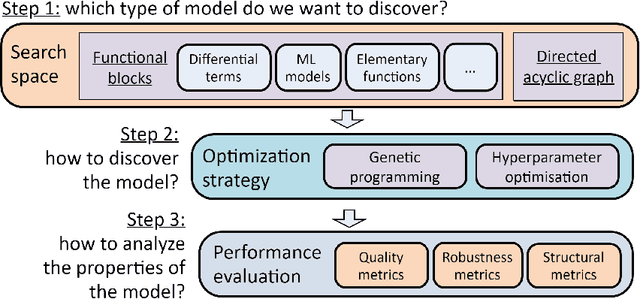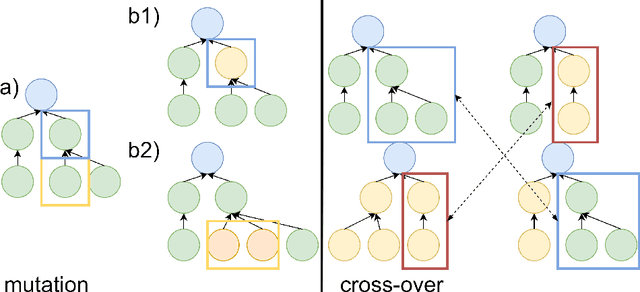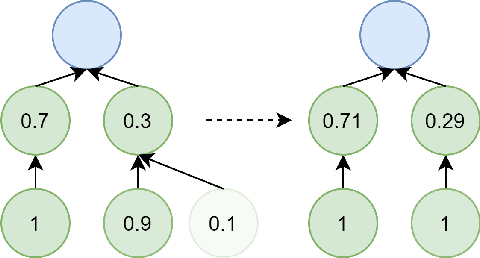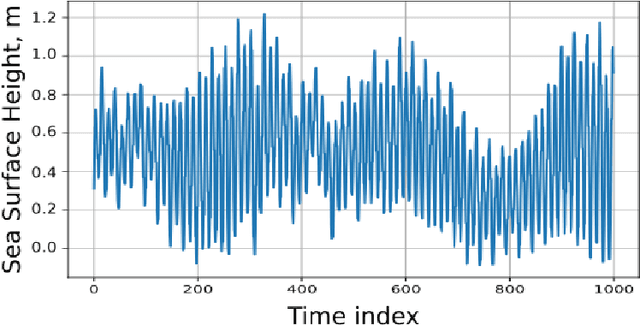Mark Merezhnikov
Model-agnostic multi-objective approach for the evolutionary discovery of mathematical models
Jul 08, 2021



Abstract:In modern data science, it is often not enough to obtain only a data-driven model with a good prediction quality. On the contrary, it is more interesting to understand the properties of the model, which parts could be replaced to obtain better results. Such questions are unified under machine learning interpretability questions, which could be considered one of the area's raising topics. In the paper, we use multi-objective evolutionary optimization for composite data-driven model learning to obtain the algorithm's desired properties. It means that whereas one of the apparent objectives is precision, the other could be chosen as the complexity of the model, robustness, and many others. The method application is shown on examples of multi-objective learning of composite models, differential equations, and closed-form algebraic expressions are unified and form approach for model-agnostic learning of the interpretable models.
 Add to Chrome
Add to Chrome Add to Firefox
Add to Firefox Add to Edge
Add to Edge